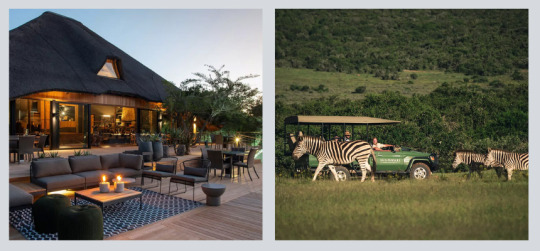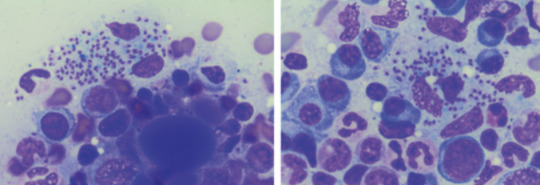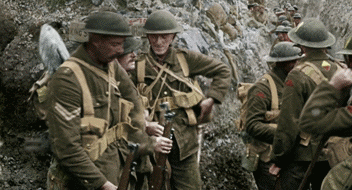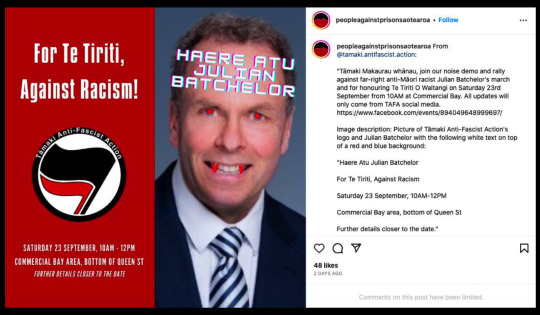#south africa travel agents
Explore tagged Tumblr posts
Text
Website : https://www.trvldynamix.co.za/
Address : Sandton, Johannesburg, Gauteng, South Africa
TRVL Dynamix was founded in 2020 with the goal of establishing an exceptional South African Travel Management Company.
We pride ourselves in building travel around our client’s needs and offer top of class personalized experiences using our professional expertise of over 15 years and travel technology.
We are a Level1 BEE 100% Black Female owned entity and offer Concierge Travel as well as Corporate Travel services to local & international travelers and organizations, aligning with current trends and client needs.
Our Services:
- Concierge Travel
Our Concierge travel service is an ideal choice for anyone looking for a hassle-free, personalized travel planning experience. With this service, you can sit back, relax, and let the experts take care of all the details, so you can enjoy a stress-free and unforgettable vacation.
- Corporate Travel Services
Our Corporate Travel Service division provides businesses with a comprehensive travel management solution, offering customized booking options, expense management, compliance management, and detailed reporting. By partnering with us, organizations can streamline their travel booking process and reduce travel-related expenses, while also ensuring the safety and well-being of their employees
-Meeting, Incentive, Conferencing & Events
Our team provides businesses and organizations with comprehensive event planning and management services, offering customized event planning, venue sourcing, audiovisual equipment rental, catering, and transportation. By partnering with TRVL Dynamix, businesses and organizations can streamline the event planning process, reduce costs, and expect the success of their events.
Linkedin : https://www.linkedin.com/company/trvl-dynamix/
Zoominfo : https://www.zoominfo.com/c/trvl-dynamix/555988390
Keywords:
travel agencies south africa
travel to south africa
traveling to south africa
travel agencies south africa
south africa travel packages
biggest travel agency in south africa
online travel agency south africa
event planning courses south africa
south africa travel agents
travel agents south africa
south africa travel agent
south africa travel blog
south africa travel visa
travel agency south africa
where to travel to in south africa
corporate travel agencies south africa
host travel agency south africa
best time of year to travel to south africa
luxury travel south africa
south africa travel agency
travel deals south africa
travel insurance to south africa
travel packages to south africa
vaccines for south africa travel
event safety plan template south africa
rennies travel agency south africa
adventure travel south africa
cape town south africa travel
cape town south africa travel packages
exoticca travel reviews south africa
intrepid travel south africa
johannesburg south africa travel
pet travel south africa
south africa tours for solo travellers
south africa travel costs
south africa travel specialists
south african travel agencies
south african travel specialists
traveling to south africa vaccines
corporate travel agencies in south africa
luxury travel agency south africa
event planning companies in south africa
corporate travel management companies south africa
corporate travel manager jobs in south africa
institute of travel management south africa
list of travel management companies in south africa
travel and tourism management jobs in south africa
travel and tourism management salary in south africa
travel management companies in south africa
travel management tenders south africa
travel manager salary south africa
wings travel management south africa
amount for event planning business in south africa
amountfor event planning business in south africa
corporate event planning south africa
event management plan in south africa
event planning business in south africa
event planning business plan south africa
#travel agencies south africa#travel to south africa#traveling to south africa#south africa travel packages#biggest travel agency in south africa#online travel agency south africa#event planning courses south africa#south africa travel agents#travel agents south africa#south africa travel agent#south africa travel blog#south africa travel visa#travel agency south africa#where to travel to in south africa#corporate travel agencies south africa#host travel agency south africa#best time of year to travel to south africa#luxury travel south africa#south africa travel agency#travel deals south africa#travel insurance to south africa#travel packages to south africa#vaccines for south africa travel
1 note
·
View note
Text
Safari Secrets: Wild Wonders of Southern Africa | Luxury Getaways

Imagine waking up to the call of wild birds, the sun rising over vast savannahs, and the thrill of seeing a lioness in her natural habitat. Southern Africa’s safaris offer not just an adventure but a deeply transformative journey. Whether you’re wandering Namibia’s desert dunes or cruising Botswana’s waterways, luxury safaris here combine unparalleled wilderness with world-class comfort.
Here’s a guide to uncovering the best safari secrets in Southern Africa.
Why Choose Southern Africa for a Safari?
Southern Africa boasts some of the most diverse ecosystems on the planet, from Botswana’s lush Okavango Delta to the stark, otherworldly beauty of Namibia’s Sossusvlei dunes. It’s a haven for wildlife enthusiasts, offering sightings of the iconic Big Five, rare antelope species, and a kaleidoscope of birdlife.
What sets this region apart is its commitment to conservation and eco-tourism, ensuring that your travel footprint contributes positively to preserving these natural wonders. Add in the luxurious lodges and curated experiences, and Southern Africa stands out as the ultimate safari destination for those seeking exclusivity and authenticity.
Destinations to Explore
South Africa

Explore Shamwari Private Game Reserve, a conservation success story where vast plains are home to rhinos, elephants, and leopards. Shamwari offers both thrilling game drives and serene landscapes for ultimate relaxation.

Located in the iconic Kruger National Park, Lebombo Lodge offers contemporary design with sweeping views of the N’wanetsi River. The lodge’s sleek architecture and proximity to wildlife make it a standout destination.

Situated in KwaZulu-Natal, Phinda Private Game Reserve boasts diverse habitats, from forests to wetlands. With exclusive activities like black rhino tracking, this reserve promises intimate and educational adventures.
Botswana

The Okavango Delta is a maze of waterways alive with hippos, crocodiles, and stunning bird species. Experience it aboard the Zambezi Queen, a luxury houseboat that glides through the Chobe River, offering unique water-based safaris.

Set in the heart of Chobe National Park, Belmond Savute Elephant Lodge is famed for its elephant sightings. Enjoy luxurious tents that blend seamlessly with the surrounding wilderness.
Namibia

The Sossusvlei Desert is a striking contrast to Africa’s verdant landscapes. Here, you’ll find towering dunes and starry night skies. Marvel at the desert’s stillness while staying at & Beyond Sossusvlei Desert Lodge, an oasis of comfort in the heart of the wilderness.
Zimbabwe

Hwange National Park is Zimbabwe’s crowning jewel, a sanctuary for elephants, lions, and cheetahs. Indulge in the opulence of Singita Pamushana Lodge, where every moment is a blend of luxury and immersion in untouched nature.
Zambia

Known as the home of walking safaris, Zambia offers intimate encounters with wildlife. Stay at the Royal Livingstone by the Zambezi River, and pair your safari with breathtaking views of Victoria Falls.
The Luxury Safari Experience

Luxury safaris in Southern Africa redefine the art of travel. At Shamwari Private Game Reserve, you’ll enjoy exquisite dining under the stars, guided by the rhythms of the bush. Every villa is designed for privacy and comfort, ensuring you’re always connected to nature without compromising on elegance.
In Botswana, the Zambezi Queen elevates the safari experience to the water. Glide along the Chobe River, sipping sundowners on deck as elephants and buffalo gather at the riverbanks.
Namibia’s & Beyond Sossusvlei Desert Lodge offers a different kind of luxury - solitude. Wake up to sweeping desert views and wind down with guided stargazing sessions under one of the clearest skies on Earth.
Zimbabwe’s Singita Pamushana Lodge combines cutting-edge sustainability with indulgence. Here, infinity pools overlook vast wildlife-rich plains, and every detail is designed to immerse you in luxury while respecting nature.
Finally, the Royal Livingstone in Zambia merges colonial charm with modern opulence. Enjoy sunset river cruises or indulge in spa treatments with views of Victoria Falls - a perfect blend of adventure and relaxation.

Signature Experiences You Can’t Miss
Hot Air Ballooning in Namibia: Soar over the Sossusvlei dunes for breathtaking views at sunrise.
Water Safaris in Botswana: Glide through the Okavango Delta by mokoro (canoe) for a unique perspective on the region’s wildlife.
Sunset Game Drives in Zimbabwe: Witness the golden hues of the savannah as nocturnal creatures begin to stir.
Walking Safaris in Zambia: Feel the thrill of tracking animals on foot with expert guides.
Dining in the Wild: Enjoy private bush dinners under starlit skies, with the sounds of the wild as your soundtrack.
A Call to Adventure
Southern Africa’s safari secrets promise a blend of adventure, luxury, and unforgettable moments. Whether you’re gliding along the Chobe River or watching elephants at sunset from your villa, every day is an invitation to reconnect with nature in style.
So, which safari secret will you uncover first? Let us help you plan your extraordinary journey into the wild wonders of Southern Africa!
Our luxury travel consultants are dedicated to curating seamless and personalized experiences for every traveler. From arranging premium accommodations, flights, and private transfers, every detail is meticulously planned. Whether it's a special occasion or the journey of a lifetime, connect with us to design an unforgettable Luxury Getaway.
Tags:
#luxurygetaways
#SouthernAfricaAdventures
#AfricanSafari
#LuxurySafari
#BucketListTravel
#WildlifeWonders
#ExploreSouthAfrica
#VisitBotswana
#DiscoverNamibia
#TravelZimbabwe
#ZambiaWildlife
#WildlifeLuxuryLodges
#LuxurySafariLodges
#DreamVacations
#SafariDreaming
#AfricanWildlife
#BigFiveSafari
#IntoTheWild
#SafariLife
#NatureExplorers
#TravelInspiration
#AdventureAwaits
#WanderlustVibes
#GlobetrotterGoals
#OnceInALifetime
#tours#traveling#travels#luxury tour agency#luxury travel agent#luxury travel expert#tour and travel#tourism#tours and travels#south africa#safari#namibia#zimbabwe#botswana#zambia#luxurysafari
2 notes
·
View notes
Text
Finding Affordable Travel Agents in South Africa

Looking for affordable travel agents in South Africa? Discover reliable options that fit your budget without compromising on quality. Whether planning a safari or a city escape, the right travel agents in South Africa can help you find the best deals and experiences tailored to your needs.
0 notes
Text




Explore the diverse wonders of #Africa with our curated tour packages. Immerse yourself in the rich cultural tapestry, from the bustling markets of Marrakech to the stunning #landscapes of the Serengeti. Witness the majestic Victoria Falls, embark on thrilling safaris, and savor authentic culinary delights.
#tour operator in delhi#travel agent in delhi#golden triangle package#travel agency in india#travel agency in delhi#travel agents in delhi#international tour package#south africa tour package
1 note
·
View note
Text
10 Things You Should Know Before Visiting South Africa
South Africa, often referred to as the "Rainbow Nation," is a country of diverse landscapes, cultures, and experiences. From stunning wildlife safaris to vibrant cities and rich historical sites, South Africa offers a tapestry of adventures for travelers.
South Africa promises a journey of a lifetime, filled with breathtaking scenery, rich cultural experiences, and encounters with incredible wildlife.
Remember, keeping some important tips in mind, you’ll be better prepared to make most of your adventure in this diverse and vibrant nation.
Check out this list of the ten essential things that you should know before visiting this country to create memories that will last a lifetime.
1. Diverse Cultures and Languages

South Africa boasts a multicultural society with 11 official languages. English is widely spoken and understood, but learning a few basic phrases in Zulu, Xhosa, or Afrikaans can enhance your interactions with locals.
To Read More Click here...
#travel#travel agent#travel guide#travel photography#travel life#travel tips#travel blogs#travelling#travel destinations#south africa
0 notes
Text
thinking about "the Great Beast".
thinking about the superlatively unique and loveable creature, the tapir.
thinking about European colonial agents being perplexed and bedazzled upon first encountering the "forest cow" and the "elephant of the New World".
thinking about how an incredible extinct megafauna icon, the giant ground sloth, got its name (and became a central character in popular and professional discussions of paleontology and "extinction").
thinking about bulletproof moose.
thinking about eighteenth-century apothecary remedies.
thinking about how an animal name traveled from the Sahara in North Africa, through Arabic into Spain, to boreal forests of northern Eurasia, across the Caribbean and South America to describe "the beaste in which nature hath endeavoured to shewe her cunnyng".
#long been fascinated by the endemic wooly mountain tapir living only in isolated cloud forest of tropical andes#and of course giant sloths
126 notes
·
View notes
Text
Only at the end of his life did Karl Marx leave the shores of Europe and travel to a country under colonial dominion. This was when he went to Algeria in 1882. ‘For Mussalmans, there is no such thing as subordination’, Marx wrote to his daughter Laura Lafargue. Inequality is an abomination to ‘a true Mussalman’, but these sentiments, Marx felt, ‘will go to rack and ruin without a revolutionary movement’. A movement of revolutionary understanding would easily be able to grow where there was this cultural feeling against inequality. Marx did not write more about Algeria or about Islam. These were observations made by a father to his daughter. But they do tell us a great deal about Marx’s sensibility.
There was no room in Marxism for the idea that certain people needed to be ruled because they were racial or social inferiors. In fact, Marxism – from Marx’s early writings onward – always understood human freedom as a universal objective. Human slavery and the degradation of human beings into wage slavery awoke in Marx his prophetic indignation. One of Marx’s most famous passages in Capital (1867) pointed out that the ‘rosy dawn of the era of capitalist production’ should not be found in the antiseptic bank or factory. The origin of capitalism had to be found – among other processes – in ‘the extirpation, enslavement and entombment in mines of the aboriginal population, the beginning of the conquest and looting of the East Indies, the turning of Africa into a warren for the commercial hunting of Black skins’. Capitalism grew and was sustained by the degradation of humanity. No wonder, then, that anti-colonialism would play such an important role in the Marxist movement.
When Marxism travelled outside the domain where Marx first developed the theory, it had to engage with what Lenin called ‘the most essential thing in Marxism, the living soul of Marxism, the concrete analysis of concrete conditions’. This formula was valuable from the Dutch East Indies to the Andes.
In the Andes (in South America), one of the greatest (and least known) Marxist thinkers – José Carlos Mariátegui (1894-1930) – wrote in 1928, ‘We do not wish that Socialism in America be a tracing and a copy. It must be a heroic creation. We must, with our own reality, in our own language, bring Indoamerican socialism to life.’ What did Mariátegui do? He read his Marx and his Lenin – and he studied deeply in the social reality of the Andes. Lenin’s theory of the worker-peasant alliance provided a fundamental addition to his Marxism. The ‘socialist revolution in a mainly agrarian country like Peru in the 1920s’, he wrote, ‘was simply inconceivable without taking into consideration the insurgent mobilization of indigenous rural communities that were challenging the power of large land-owners (latifundistas) who were responsible for keeping alive old forms of economic exploitation’. The agent of change in Peru amongst the producing classes had to include the indigenous rural communities whose population was mainly Amerindian. To seek the insurgents amongst the minuscule industrial sector of Lima alone would be to go into battle with capital with one hand tied behind the back. This is an echo of Lenin’s call for worker and peasant unity, but with the indigenous communities now in the framework.
Were the indigenous rural communities capable of a socialist movement? In the 1920s, when Mariátegui was writing, the prevailing intellectual fashion with regard to the rural communities was indigenismo, or Indianness – meaning a cultural movement that revived and celebrated Amerindian cultural forms but did not seek to explore their transformative potential. Indigenismo defanged the Amerindians and romantically saw them as culture producers but not history producers. Mariátegui reinterpreted their history in a more vibrant way – looking backwards at Inca primitive socialism and current struggles against the latifundistas as resources for social transformation. ‘The thesis of a communist Inca tradition is’, he wrote, ‘the defence of a historical continuity between the ancient Inca communal way of life and the Peruvian communist society of the future’. Mariátegui’s Andean socialism was never a restoration of the past, of a primitive communism of an ancient Inca world. ‘It is clear that we are concerned less with what is dead than with has survived of the Inca civilization’, he wrote in 1928. ‘Peru’s past interests us to the extent it can explain Peru’s present. Constructive generations think of the past as an origin, never as a programme’. [my italics] In other words, the past is a resource not a destination – it reminds us of what is possible, and its traces show us that elements of that old communitarianism can be harnessed in the fight against colonial private property relations in the present. When Marxism came to the Third World, it had to be supple and precise – learn from its context, understand the way capitalism morphs in a new venue and explore the ways for social transformation to drive history.
The Comintern tried to be supple, but its limited knowledge of the world meant it ended up being far too dogmatic to be always useful. By the late 1920s, the Comintern suggested the creation of a Black Belt in the southern region of the United States, Native Republics in South Africa and an Indian Republic along the Andean region of South America. From Moscow, it appeared as if the nationalities theory could be easily transported to these distant lands. For South America, the theory was debated at the First Latin American Communist Conference held in Buenos Aires in June 1929. Fierce debate broke out here, with the Comintern’s preferred position being opposed by Mariátegui’s associates. ‘The construction of an autonomous state from the Indian race’, Mariátegui wrote, ‘would not lead to the dictatorship of the Indian proletariat, nor much less the formation of an Indian State without classes.’ What would be created is an ‘Indian bourgeois State with all of the internal and external contradictions of other bourgeois states’. The preferred option would be of the ‘revolutionary class movement of the exploited indigenous masses’, which was the only way for them to ‘open a path to the true liberation of their race’. The debate on goals and strategy became so fierce that this was the only Latin American Communist Conference to be held. ‘The indigenous proletariat await their Lenin’, Mariátegui wrote. He meant not a Lenin as such, but a theory that could emerge from the movements to lead them against the rigid structures of the past and present.
This was not always the lesson that was learned. But it is our lesson now.
Red Star Over the Third World, Vijay Prashad, 2019
7 notes
·
View notes
Text
Leishmaniasis
Case Reports, like we're on a episode of house

23M in Kenya, presenting with months of LOW, persistent fevers, and abdo fullness, found to have massive splenomegaly.
examination: massive splenomegaly (10 cm below costophrenic margin, and will definitely cross midline) and hepatomegaly
pancytopaenic on bloods, plt's down to 40s
diagnosis confirmed on BMAT (parasite seen)
normal HIV, liver and kidney function
Bodies seen on the BMAT below are part of the lifecycle of the parasite that is intracellular, hence you can see the macrophages/neutrophils loaded with them, even bursting

What is it:
think of it when you get a patient with pancytopaenia and hepatosplenomegaly, who either traveled to or is in/from a tropical/subtropic region (where sand flies are)
cause - protozoa parasite Leishmania, transmitted by infected sandflies
Epidemio (when to consider it)
tropics, subtropics (South America, Asia, AFrica), Southern Europe
Microbiology/Transmission
parasite, replicates intracellularly (Leishmania donovani)
transmitted in sand flies (can be unnoticeable and usually bite in dawn or dusk - evenings or night), can also be transmitted via needles/blood
more common in rural areas
I've simplified this, but is more extensively covered in StatPearls and Wiki (there's different species of Leish and sandflies that transmit it)
once bitten, the protozoa are phagocystosed by skin macrophages, which then becomes full of the "bodies" (part of the lifecycle). Eventually these burst to release more of the bodies that infect more macrophages
they eventually are spread via blood to liver/spleen/BM and LNs
Random history:
ancient, records of disease date back to Egyptian mummies from 3000 BC --> positive DNA amplication for Leishmania and on papyrus from 1500 BC

multiple physicians from different times have described the disease, but it's named for 2 who described the parasite's intracellular ovoid body stage in smears from infected patients in India: Lt General William Boog Leishman and Captain Charles Donovan (Ronald Ross named the bodies after the 2 --> "Leishman Donovan bodies"
significant disease in Allied troops in Sicily in WWII, called "jericho buttons" (image on wiki from a WWI trooper serving in the middle east)

Leishman: Scottish pathologist and British Army medical officer, later it's director general in the 20s, did extensive research into the parasite named for him by Sir Ronald Ross. He mistook the parasite he observed for trypanosomes (cause of Chagas in South America and African sleeping sickness in Africa)
Donovan: Irish parasitologist, medical officer in India, observed an epidemic across India just after the rebellion of 1857, discovered the "bodies" in spleen tissue as the causative agent for what the locals called "kala azar" (severe visceral leishmaniasis - see below)
Donovan also discovered the "bodies" of Klebsiella granulomatis, hence these too are named after him (cause of ulcerative granulomas)
It became scandalous as both wanted credit for the "discovery" of this newly identified organism. So Sir Ronald Ross named it for both of them.
Sir Ron, by the way, won a Nobel in Medicine for discovering that malaria is transmitted via mossies (this was also a source of scandal, he was meant to share it with another physician who he accused of fraud - and they never received the award)
finally, it was actually a Russian physician who identified it first, but well, he published in a little known Russian journal which was promptly forgotten.
Clinical features
cutaneous type vs visceral organ type (spleen, liver, bones)
From wiki

can be asymptomatic
cutnaeous: can be there for years and resemble leprosy, causes an open chronic wound (most common), incubation 2-4 weeks on average (nodules at site of inoculation that eventually form ulcers), can heal spontaneously in 2-5 yrs
in diffuse cutaneous cases, can affect face, ears, extensor surfaces
can be muscosal = eg nasal symptoms/epistaxis, severe: perforated septum, this occurs in 1/3 after resolution of cutaenous symptoms (can be severe/lifte threatning, as it can affect vocal cords and cartilage, but oddly not bone)
visceral (incubation periods of up to years until immuncompromise): fever, weight loss, hepatosplenomegaly (spleen more than liver), pancytoaepnia, high total protein and low albumin with hypergammaglobulinaemia
this has seasonal peaks related to sandfly habits and humidity
interestingly it is an infective cause of massive splenomegaly, such that it crosses the midline
Extreme - but noticeable hepatosplenomgealy/abdo fullness, from medscape

can be atypical in HIV co infected patients, LAD in seom regions like Africa
Kala azar = black fever in some severe cases (fatal due to secondary mycobacterial infection or bleeding), refers to damage fto spleen, liver and anaemia
invstigations:
serology not great (minimal humoral response to the parasite), so often requires histopath (tissue sample) for which BMAT is safest in visceral organ involvement
visualisation of amastigotes (or Leishman-Donovan bodies), as intracellular --> can be seen in macrophages (small round bodies) post Giemsa staining
PCR of DNA also possible (as done in the Egyptian mummies)
Image source:

Treatment

liposomal amphotericin B (holy shit strong stuff) in visceral, PO: miltefosine (caution in pregnancy), all have significant ADRs, or paromycin. however, mortality of 10% if visceral left untreated
mixed results with azoles
in HIV co infection - start the HAARTs! can improve survival, mortality is 30% in HIV patients
cutaneous: stibolgluconate (have never heard of these drugs) and megluaine antimoniate, but limited disease often spotnaeously gets cleared by the innate system
prevention:
use DEET insect repellant at dawn and dusk
loose fitting clothing that covers all skin
no vaccine (were attempts at vaccinating dogs, which decreased rates)
sandflies are smaller than mossies, so requires small netting

Differentials for hepatosplenomegaly

Sources:
WHO guidelines
CDC guidlelines
Wiki - Haven't covered pathophysio, but wiki does extensively
StatPearls
DermNet - great resource for all things derm, that my derm colleagues pointed out to me
9 notes
·
View notes
Text
Media, politics, citizenship
Media, politics and citizenship.


Counter Protesting: Julian Batchelor
This social media post created by Tamaki Anti-Fascist action shows a call for a counter-protest to Julian Batchelor’s ‘Anti co-governance' tour. I believe that the message in the social media post is the correct response to Batchelor’s actions and beliefs, here’s why.
Anti – co-governance is a large issue in today's media and political sphere. Since the creation of the Three Waters Act, disinformation has led to a large and misinformed political movement. Historically anti-Māori and anti-treaty actors have reemerged as the leaders of this new movement with Julian Batchelor being at the forefront. Through uninformed rhetoric pushed by Aotearoa’s big right-wing parties (National, Act and New Zealand First) and the accompanying media outlets (Newstalk ZB and The Platform etc.) the public reaction has been skewed. Adding to the conspiratorial confusion in the wake of the COVID response, a movement of right-wing paranoia has emerged. Julian Batchelor organised a tour of the nation, travelling to all lengths of the country to spread his message. This message is calling for intervention in mild treaty support policies that he believes will turn New Zealand into an ‘apartheid, tribal rule state’.
Julian Batchelor is a Kenyan born, New Zealand evangelist who has made a living from church donations and his large property portfolio amassed largely during his time as a real-estate agent. Batchelor, a born-again Christian, developed his theological model on the idea that humans either have a light or dark soul and are battling for power. His theological theories relate highly to his political platform based around anti co-governance. Batchelor has been campaigning on the idea that having Māori representation in the form of co-governance equates to apartheid that was seen in South Africa.
Despite the tour's occasionally substantial support, the opposition to the tour has brought left-wing, anti-fascist and revolutionary socialist organisations together with the public masses to organise counter-protests. The social media post we are analysing comes from the recent counter-protest organised in coalition between ‘Tamaki Anti-Fascist Action (TAFA)’ and ‘Organise Aotearoa (OA)’. To round-up his tour, Batchelor decided to march up Queen St in Tamaki Makaurau where many organisations on the right joined up under his banner. Amongst these groups was NZ neo-Nazi's ‘Action Zealandia’ and Brian Tamaki’s ‘Freedoms coalition’.
The social media post here was created by TAFA to organise and share the message that they were going to counter protest. This is an example of DIY citizenship as they are trying to create a grassroots event in reaction to an opposing political movement. On the day, counter-protesters from Auckland gathered in a noise protest designed to disrupt and drown out Batchelor’s speeches. At the front line of Batchelor’s protest were five Action Zealandia members shouting racial abuse at the more diverse group of counter-protesters including, “go home savages, go home”, as a part of their chant. After a couple of hours, they moved on and the counter-protesters were stopped by police from advancing further.
This social media post aligns with my beliefs as I was there as a member of one of the organisations. I believe that DIY citizenship is important to create an opposition to racist movements and disseminate the disinformation that they share. In this example, we managed to get a small interview with newshub in which it was pointed out that there were neo-Nazis amongst their protest which shows where they truly stand. It was important to get some kind of media to cover the issue as without it you are only left with a public reaction which may be interpreted any way without context. On the opposing side they had their own internal media in the form of mana news. I reviewed the footage taken by mana news during the protest and it was evident that they had no idea what we represented or that they had Nazi’s on their front line.
As an extension of grassroots movements, media is an important addition to DIY citizenship. The form of media taken to provide information about a movement against Batchelor’s anti co-governance tour is social media. Accessible to most people, grassroots movements have begun to rely on social media’s reach and accessibility to create effective movements. Social media platforms such as Instagram, Facebook (events), Telegram and Discord are now key platforms for organising DIY citizenship events and movements. Although traditional media often takes interest at the peak of conflict through DIY movements, they often come in late, use little context and provide a bad take on what is happening and has been happening on the ground. Despite the positivity of getting to talk to mainstream media which sometimes does not happen, Newshub reduced the event to a ‘major shouting match’ without giving much time to explain the conflict or write a meaningful analysis. Without these more diverse forms of media, DIY citizenship would be far more challenging to practice.
In conclusion, I believe that the social media post and action taken were a correct response to the issue we were facing. Anti co-governance is fundamentally a continuation of settler colonialism and racist policy that will only benefit wealthy settlers under the current capitalist system (like Julian Batchelor). In times where DIY citizenship is needed and required to hit the streets, social media can be very effective in assuring that people are informed and prepared to take part.
Ariel Bogle. Far-right voice opponents Co-opt comments from controversial New Zealand speaker. (2023, August 22). the Guardian. https://www.theguardian.com/australia-news/2023/aug/23/who-is-julian-batchellor-stop-co-governance-new-zealand-far-right-speaker-indigenous-voice-to-parliament-referendum-no-campaign
Julian Batchelor. (2023, October 25). Wikipedia, the free encyclopedia. Retrieved October 27, 2023, from https://en.wikipedia.org/wiki/Julian_Batchelor
Jessica (no last name given). Where the parties stand on Co-governance. (9/9/2023). Democracy Action. https://www.democracyaction.org.nz/where_the_parties_stand_on_co_governance
Perry Wilton. (23/9/2023). Newshub, https://www.newshub.co.nz/home/new-zealand/2023/09/major-shouting-match-in-auckland-as-stop-co-governance-movement-clashes-with-counter-protesters.html
Blog 2

This article published by New Zealand doctor describes the sacrifices that the National party will make to public services, in particular healthcare, in order to fund their tax cut policy. I believe that the argument made in this article is correct and here’s why.
The article published September 13, 2023, describes the worries held by healthcare professionals after an interview Christopher Luxon did with the morning report. The article follows the response from the Public Service Association in reaction to Luxon’s comments. What they are saying is that National’s fiscal policy looks to defund or refuse to increase funding of backstaff healthcare work as they do not see it as being important in comparison to frontline health work. The PSA argues that without funding for all of the other parts of healthcare, frontline workers will not have the necessary funds to do their job correctly or efficiently. They continue to say, “Mr Luxon is either ignorant of how health services are delivered, or he is deliberately misleading New Zealanders”. Added on to this, National’s healthcare policy shows that they still want to increase vaccination rates which is contradictory to their policy of defunding the public sector.
National’s tax cut policy, as with dozens they’ve had before this election, always looks good on the outside. In reality, the National party needs to find $8 billion in order to fund the policy. Until as recently as the opening of voting, Luxon refused to answer (among other things) where they would get the money from. After some time of deflecting the question they finally said what everyone had expected, that the money would come from defunding the public sector. As a right-wing party, it is always going to be in the corporate interest to privitise public services in favour of private corporations and contractors so that they can make essential industries profitable. The obvious downside to this is that the only people who ever benefit are the extremely wealthy business owning class. Luxon’s career as a CEO in major international corporations only shows his further commitment to helping exclusively his rich friends, donors and those of the same class. Healthcare workers for as long as neoliberalism has existed have been the first to bare the brunt of neoliberal privitisation and destruction of the public sector. With Labour, few to no concessions were made in regards to helping healthcare workers, however, National’s plan will explicitly hurt their funding more.
The article does a good job of showing healthcare professionals reaction to the issue. Many other workers in public industry are currently feeling the same about the immenent drop in quality of their working conditions and pay. As well as healthcare, National plans to cut public transport (including the Auckland light rail project) in favour of building roads, bring back prescription fees, destroy Fair Pay Agreements, bring back no-cause evictions, get rid of the maori health authority, clean car discount, funding for education and welfare. In contradistinction to their claim that they are ‘working for all New Zealanders’, National’s tax cut plan is specifically designed to get rid of any union power, concessions to the working class and accessible public services.
This article shows the importance of having forms of industry related media. NZ Doctor focuses on industry related stories and information, providing good journalism written by people in the industry or who have worked in the industry. Mainstream media generally fails to capture industry perspectives on issues until union struggle or public outcry becomes vocal on an industry problem. In this particular case, National party is breaking the healthcare workers political citizenship by banning free pay agreements which remain one of the only measures that healthcare workers have been able to use to gain industry concessions. Free pay agreements were one of the surviving union and industry tools since unions were stripped of their power through neoliberalism. Essentially what they allow is industry wide union strikes and industry wide policies rather than making a union struggle that only caters for a single business. With National party’s imminent FPA ban coming, the strikes by healthcare workers, teacher etc. will be forced to stop on a legal basis. This ban gives much more power to corporations who strive to make profit at all costs over the welfare of their workers. The less a corporation has to pay to it’s workers and facilities in order to run, the more profit they will make - and that is exactly what National party and their capitalist donors want.
This article aligns with my beliefs as I stand by workers in all industries and believe that corporations and capitalist politicians should not be in power of a functioning democracy. The history of the destruction of Unions and public sector industries is a travesty for the working class in NZ and world-wide. I believe it is important for industries to not only have strong unions, but also have their own media like the healthcare industry does. Ultimately I, as do the Public Service Association, think that the cutting of public sector funding as well as their ability to fight for conditions works only in the interest of the ruling minority of our country and against the interest of the working majority.
In conclusion, I agree with the sentiment of this article. They have done a good job of portraying the injustices done upon their rights as an industry and as citizens by National Party policies. It is important to have media that is industry focused and believes in doing the right thing for the public and for their workers.
Media Release from the Public Service Association. (2023, September 13). Watch out New Zealand, cuts to health spending coming under a national-led government. New Zealand Doctor. https://www.nzdoctor.co.nz/article/undoctored/watch-out-new-zealand-cuts-health-spending-coming-under-national-led-government
Michael Neilson. National's focus on benefit sanctions goes against evidence - expert. (2023, September 26). NZ Herald. https://www.nzherald.co.nz/nz/politics/election-2023-national-party-sanctions-benefit-policy-goes-against-evidence-expert-weag-says/DS552SZZURFCZK3IXKWK4MYZLY/
3 notes
·
View notes
Text
2024 GLOBAL PREDICTIONS BY DR. DAVID ANIYIKAYE
1. The Nigerian Economy will be in a very delicate state due to inflation & scarcity of funds. I see a highly challenging year for the economy because it's still in a transitional stage. There is a desire to ditch an over-reliance on the dollar. (The Yuan & digital currency in view) but the cabals will resist the move fiercely.
2. Crime rate will be on the rise in Nigeria. The rate of prostitution & selling of hard drugs next year will be insane. I see busy timelines for law enforcement agents.
3. Speculative ventures & investment companies will flood the market space; where most of them will be positioned to rip people off based on "opportunities" for fast cash.
4. Politically, I see a lots of decampment in Africa! New allies or hybrid parties will be formed.
5. There will be economic recessions globally; a downturn for the USA as the dollar gets more weakened. Joe Biden will not win the election, & a woman or a Trump could replace him.
6. Russia & China will have the upper hand in the global power dynamics of 2024. Putin will be flexing his muscles but must be wary of the effects of wrong decisions on the economy of Russia. India will experience huge growth economically, while the UK will experience a highly challenging year.
7. Ukraine will be completely defeated by Russia in 2024 & will be taken over for a build.
8. Tensions will continue in the middle east in 2024 but there will be the appearance of some powerful figures for conflict resolutions to prevent WWIII. Tensions will exist strongly between the USA & Iran, while Russia sides with Iran. The role of China will be crucial to avoid escalations.
9. There will be massive spiritual awakening like never before, globally.
10. Big year of success for Davido & afrobeats in general. Wizkid will be moving smarter to regain lost grounds.
11. A year marked with conflicts, civil wars in many countries, heavy restrictions globally & financial losses for big companies.
12. A year of judgement for many evil people who pretend to be angels of light. It's also a year of fruition & rewards for the righteous.
13. A fortunate year for travel & hospitality industries. The desire for travel will be very high generally in 2024.
14. Huge progress in scientific discoveries, inventions & technological advancement. (Cure for an incurable disease).
15. A year of intense office politics & legal disputes. There will be intense discord among leaders due to differing opinions but I see hard settlements. World powers could resort to underhand tactics to gain control (e.g Major cyber attacks).
16. Nigerian actress Bimbo Akintola should lay low & be more mindful in 2024 to avoid a tragedy, bad health or huge loss.
17. Obtaining funding & raising capital will prove to be more challenging for many countries. It will require diligent efforts & valuable alliances to gather resources in 2024. Africa will come into huge focus because of her resources.
18. Some countries might offer to help Niger Republic (E.g China). The country is in need of a leader, & must be very careful in forming alliances. I see a major coup happening in another African country.
19. Pray against earthquakes, volcanic eruptions, flooding or other kind of disaster in places around California, Mexico, Italy, Japan, Turkey, Syria & Indonesia.
21. Some high profile men & women being brought down to earth in 2024. It's a year of karmic repercussions for past evil deeds. I see more unveiling of more scandals & atrocities.
22. People born in the year 1982, 1994, 1970 & 1958 with birth-month between March & December must be very careful of launching or starting anything new in the year 2024. They should avoid anything that has to do with some spotlight or risky moves. Prayers should be done against evil enchantments, the face of God should be sought like never before.
23. South Africa, France & India could form more economic alliance with Russia. India will be doing very well economically.
24. There will be significant climatic changes that are unfavourable globally. Sea levels will be rising exponentially. World governments will lay huge emphasis in the area.
25. Significant laws will be passed in relation to the use of AI as it gains more ground in the tech & media industry.
26. Dwayne Wade getting into some trouble legally. Gabrielle union could remarry or make a new relationship official & I foresee some sort of elevation of status for her.
27. Don Jazzy finally stepping down as the main boss of his label, to lead behind the scenes. He should be mindful of his health & not begin anything new for the spotlight to avoid a huge loss in 2024.
28. Fortunate year for Rihanna but artistes like Ty Dolla, Nicki Minaj, Lil' Uzi, Madonna, Lil' Baby, Lil' Wayne & Zlatan could be in the news for bad reasons. They should lay low in 2024 & be more prayerful.

#prophesy#predictions#new year 2024#seer#spirituality#astrology#clairvoyance#follow#i follow back#inspiration#inspiring quotes#instant folllow back#motivating quotes#the prophesies begin
4 notes
·
View notes
Text


Name: Tara Vivianne Fitzgerald Nicknames: / Gender/Pronouns: Cis-female, Her/Hers Age: 35 Birthday: September 3rd, 1987 Hometown: London, UK Neighborhood: Soho Occupation: MI5 detective Gang affiliation: The Jabberwocks - the high priestess Sexuality: Heterosexual Languages spoken: English, German, Italian Positive traits: ambitious, charismatic, loyal, fearless Negative traits: impatient, stubborn, arrogant
The streets of London were her playground.. well, they had been up until she was six years old. It was a couple of days after Tara's birthday her family had to move from the posh London's Belgravia.. first to Berlin, then to New York. See, Tara's father John James Fitzgerald was working for the United Nations and it was due to his career Tara had been all around the world - from Australia to Argentina. With his diplomatic background and career, it was only a matter of time when he would have to start working at UN's headquarters in New York. However, considering her parents didn't quite believe in the quality of American education, Tara was sent back to England when she was thirteen years old.. with her governess, not her parents. What kind of Fitzgeralds would have they been if they had left their careers and their position in the New York society?
Moving back to London wasn't quite easy - living in the way too big Belgravia house with no one but her governess, a chef, and a maid or two, was utterly boring.. just as school was boring. Well, it was boring until she met the boy who was anything but an ordinary boy. He didn't even go to her school, but didn't mind waiting for her in front of it everyday. He even introduced her to his friends.. and very soon she became more fond of his friends than him. It didn't matter she was just fourteen and she was always the youngest of all of them - just as it didn't matter she was a girl. Tara had finally learned how it felt to belong to something.. The Jabberwocks' became her home and her family.
Yet it was evident that she was more than just another member of the gang. With her family's background, she had connections and she had money.. all of it could be used for the gang's benefits. Thanks to her paternal great grandfather, both of her grandfathers, her father.. Tara got into Oxford. Getting in was easy, getting out.. there were far more interesting things to do in life than studying, but it was her job to get that degree and put it to a good use.
And so she did. To the outrage of her parents, instead of marrying rich and taking her role in the high society, the loyal member of the Jabberwocks' became an MI5 detective. Some said it was the first step towards the MI6, but it was the first step to her role of playing another sort of an agent - the double agent. And she was so good at it that there were times when she was not even recognizing herself anymore, but the high priestess - as they called her, was fearless and would do anything and everything for the family she had chosen for herself when she was merely fourteen years old. Her life was in the constant danger, but what was she if not dangerous herself? Sipping chaos wherever she went, Tara Fitzgerald was one of the most powerful weapons the gang had.. day to day, this angel look-alike beauty is crossing her family's enemies off the list, to make them them rue the day they dared to even think of crossing the Jabberwocks.
Headcanons:
she loves sneaking up on people - you can never see or feel her coming
the fact she is one of the Jabberwocks isn't known outside of her gang, and even more so, many people in the gang doesn't know it
doesn't do love so her love life consists of hook-ups, flings & one night stands
has insomnia, but can barely function without coffee
hates talking about her parents & her family in general
has travelled all around the world, but her favorite continents by far are Africa and South America
loves Krav Maga and Jiu-Jiutsu
drives Aprilia RSV4 bike
3 notes
·
View notes
Text
The history of Africa’s encounter with Europe challenges popular understandings of discovery that often exaggerate and misattribute the initiative of international contact to Europeans. African travelers directly initiated international contacts with distant pre-modern European societies and engaged in mutual discovery and exploration with their European counterparts throughout the modern era. African envoys, scholars and pilgrims in Europe presented themselves as active agents of transcontinental discovery and purveyors of geographical knowledge at a time when much of European discourse about the African mainland was still imbued with fantasies and rumors of ancient and medieval derivation.
Our understanding of the concept of discovery is decidedly Eurocentric in perspective and disregards the remarkably cosmopolitan and enterprising Africans who contributed greatly to our knowledge about Africa and Europe. If we take into account the African initiative in contacting Europeans and the continued presence of African travelers on the European mainland, the concept of a “European discovery of Africa” becomes frivolous.
1 note
·
View note
Text


Explore the diverse wonders of #Africa with our curated tour packages. Immerse yourself in the rich cultural tapestry, from the bustling markets of Marrakech to the stunning #landscapes of the Serengeti. Witness the majestic Victoria Falls, embark on thrilling #safaris, and savor authentic culinary delights.
#tour operator in delhi#travel agent in delhi#golden triangle package#travel agency in india#travel agency in delhi#travel agents in delhi#international tour package#south africa tour package
0 notes
Text
Wildlife Tourism Market Outlook, Competitive Strategies And Forecast
The global wildlife tourism market is expected to reach USD 286.86 billion by 2030, registering a CAGR of 7.9% over the forecast period, according to a new report by Grand View Research, Inc. Increased awareness about animal conservation, global authorities working towards boosting wildlife tourism, and the advent of digital nomadization where various countries are permitting digital nomad visas are factors driving the industry. Recent news on global warming and the extinction of species have pursued many travelers to go for wildlife tourism. This is propelled by the factor that entry fees of various sanctuaries and animal parks are invested towards the conservation of flora and fauna. The positive impact of such travel makes travelers visit these places frequently.
Such tourism also increases knowledge about the environment and sensitizes citizens towards its protection and growth. Post-pandemic, various organizations have made remote work a permanent culture. With this, there is a global dominance of solo traveling due to the growing concepts of ‘independence’ and ‘personal growth’. There has been a surge in travelers who earn a living through remote work. An article by Travel Off Path suggests that in the U.S., there has been an addition of 6 million more digital nomads than in the pre-pandemic era, and the worldwide figure stands at 35 million. With countries like Jamaica, Thailand, and Ecuador issuing digital nomad visas, this will further propel the industry growth.
Many travelers prefer traveling in groups with friends owing to the benefits of such trips. Various resorts and hotels have been cropping up in and around wildlife sanctuaries, which allows travelers to visit such places with friends for leisure as well as adventure. Key players allow travelers to choose their group and form a package, which encourages more travelers to travel with groups. For instance, Thomas Cook allows consumers to customize the number of adults traveling, and according to that, the prices are set. Sustainable operating practices are adopted by companies to attract more consumers.
Gather more insights about the market drivers, restrains and growth of the Wildlife Tourism Market
Wildlife Tourism Market Report Highlights
• The group/friends segment accounted dominated the industry in 2022 and accounted for the largest revenue share
• Benefits of group traveling, leisure and adventure activities done with groups and exclusive deals given by industry players are factors contributing to its growth. In addition, services offered to groups are cheaper and more convenient
• The direct booking segment held the highest revenue share in 2022 due to the conveniences offered
• This type of booking mode aids to form a deep relationship with travelers and results in lower consumer acquisition costs along with building a loyal customer base
• Consumers in Asia Pacific are increasingly opting for wildlife tourism. The availability of a large variety of flora and fauna in the geography and increasing disposable incomes are the key factors propelling industry growth. Tiger-spotting tours are very popular in this region
Wildlife Tourism Market Segmentation
Grand View Research has segmented the global wildlife tourism market on the basis of group, booking mode, and region:
Wildlife Tourism Group Outlook (Revenue, USD Billion, 2017 - 2030)
• Group/Friends
• Couples
• Family
• Solo
Wildlife Tourism Booking Mode Outlook (Revenue, USD Billion, 2017 - 2030)
• Direct
• Travel Agent
• Marketplace Booking
Wildlife Tourism Regional Outlook (Revenue, USD Billion, 2017 - 2030)
• North America
o U.S.
o Canada
• Europe
o U.K.
o Germany
o France
• Asia Pacific
o China
o India
o Japan
• Middle East & Africa
o South Africa
• Central & South America
o Brazil
Order a free sample PDF of the Wildlife Tourism Market Intelligence Study, published by Grand View Research.
#Wildlife Tourism Market#Wildlife Tourism Market Size#Wildlife Tourism Market Share#Wildlife Tourism Market Analysis#Wildlife Tourism Market Growth
0 notes
Text
Current Property Exhibition In Hyderabad by Inchbrick Realty.
Biggest Current Property Exhibition In Hyderabad.
Are you interested in investing in Dubai real estate but don’t want to travel? Now, you don’t have to! The biggest current property exhibition in Hyderabad is bringing exclusive real estate openings to your megacity. This is your chance to explore luxury Properties, investment options, and exclusive deals from Dubai’s top inventors each under one roof.

Event Details Current Property Exhibition In Hyderabad
📍 Venue Novotel Convention Center, Hyderabad
📅 Date 15th & 16th February 2025
⏰ Time 10 AM to 10 PM
📞 For further Details 918178652086
Why Should You Attend Property Exhibition in Hyderabad?
The Dubai Property Expo in Hyderabad is designed for real estate investors, homebuyers, and NRIs looking for decoration Properties in Dubai. This event offers
Exclusive property options starting from ₹ 1.5 Cr
Free 10-Year Golden Visa for eligible buyers
Up to 16% ROI on investments
Flexible payment plans with low down payments
Chance to win a Mercedes or an International trip
Meet Dubai’s most trusted developers directly
Who Should Attend Property Exhibition in Hyderabad?
This event is ideal for
Investors looking for high returns on real estate
NRIs seeking openings to buy property in Dubai
Luxury homebuyers who want a dream home abroad
Brokers & real estate agents looking for partnership opportunities.
Business Owners & professionals are interested in Dubai’s growing economy.
Why Invest in Dubai Real Estate?
Dubai is one of the most economical real estate markets in the world. Then’s why investing in Dubai makes sense
Tax- Free Income – No property duty, heritage duty, or capital earnings duty
High Rental Yields – Earn unresistant income with rental returns up to 10 annually
Global Business Hub – Dubai is a crucial fiscal and trading center
Strategic Location – Connects Europe, Asia, and Africa seamlessly
Strong Growth Potential – Property prices and demand continue to rise
Meet Dubai’s Top Developers' Current Property Exhibition In Hyderabad.
This exhibit features some of Dubai’s most estimable real estate inventors, showcasing their rearmost and most luxurious systems
Emaar Properties – Developers of Burj Khalifa and Dubai Marina
Damac Properties – Famous for luxury estates and high-end apartments
Sobha Realty – Experts in decoration shorefront places
Dubai South – Smart megacity inventors with unborn-ready communities
Nakheel Properties – Creators of Palm Jumeirah
Exclusive Deals & Flexible Payment Plans
Buying property in Dubai is easier than ever! At the Dubai Property Expo in Hyderabad, you’ll find flexible payment plans that make investing more accessible
0% Interest Payment Plans – Spread payments without redundant cost
Post-Handover Payment Options – Pay indeed after moving in
Smallest Down Payment Offers – launch investing with minimum outspoken cost
Rent-to-Own Schemes – Convert your rent into power
Missed Our Last Property Exhibition In Hyderabad? Then’s Your Alternate Chance!
Still, don’t worry! This Mega Dubai Property Expo 2025 is indeed bigger, bringing you more options, If you couldn’t attend our former Dubai Property Exhibitions in Hyderabad.
Don’t Miss Out – Reserve Your Seat moment!
Limited personality Passes Available – Register Now!
Download Your Boarding Pass Then
FAQs About Dubai Property Investment
1. Can foreigners buy property in Dubai?
Yes! Dubai allows foreign investors to enjoy freehold Properties in designated areas. This means full power rights without restrictions.
2. What are the benefits of the 10-Year Golden Visa?
The Golden Visa provides long-term occupancy, allowing investors and their families to live, work, or study in the UAE with multiple business openings.
3. What are the financing options available?
Dubai offers developer-backed payment plans, bank mortgage financing, and rent-to-own schemes, making it easier for buyers to invest.
4. Are there any hidden costs when buying property in Dubai?
No! The buying process is transparent, with upfront costs like property enrollment freights and service charges easily outlined.
5. How safe is it to invest in Dubai real estate?
Dubai’s real estate request is regulated by the government, ensuring investor protection and long-term stability.
Why This Current Property Exhibition in Hyderabad Must Attend.
1. Unmatched Investment Opportunities.
Dubai’s real estate sector is roaring, and this exhibit brings you stylish investment options, from high-end estates to waterfront apartments.
2. Live Market Insights
Get access to exclusive real estate insight, request trends, and expert advice from Dubai’s top property inventors and advisers.
3. Networking & Business Growth
Connect with real estate professionals, investors, and inventors to explore business hookups and economic deals.
4. Exciting Giveaways & Offers
piecemeal from ultra-expensive investment openings, attendees also have a chance to win a Mercedes, international trips, and other exciting prizes!
Success Stories – Hear From Our Investors!
👨💼 Rohit Sharma( Hyderabad) “ I attended the last exhibit and reserved my first Dubai property with ease. The entire process was hassle-free, and the returns have been excellent! ”
👩💼 Pooja Malhotra( Delhi) “ The flexible payment plans made it easy for me to invest. Now I enjoy a luxury apartment in Town Dubai! ”
🏡 Investors from across India have successfully secured high-yielding Properties through our previous expo. Now, it’s your turn!

Reserve Your Seat & Unlock Exclusive Benefits!
Meet Dubai’s Top Developers
Get individualized Investment Advice
Win Exciting Prizes & Abatements
Special Expo- Only Offers Available
Take the First Step Towards Your Dubai Investment with Inchbrick Realty!
Reserve Your Seat & Download Your Boarding Pass Now!
0 notes
Text
The Communist International struggled to balance the needs of its European members with the members from the countries colonized by Europe. The former represented the countries of the colonizers. They had to fight in their own societies to build organizations of the working class and other allied classes at the same time as they were charged with driving an anti-colonial agenda. The Comintern’s attempt to get them to hold a Colonial Conference spluttered. It was difficult to find out what these European communists – seen as a pipeline to the colonies – were doing in terms of practical work to build alliances between workers in their countries and in the colonies. These European communists found it difficult to work amongst workers in their countries who had been dominated by a labour aristocracy that was often pro-imperialist. It was not easy to push a double agenda – for the rights of the European workers and for the workers and peasants in the colonies. No such difficulty lay in the colonies – from Indo-China to the Gold Coast of Africa. But other difficulties haunted communists in the colonies. They found it difficult to create a precise framework to work with the bourgeois nationalists who also hated colonial rule but who had no problem with capitalism. These contradictions dampened the work of the Comintern. Nonetheless, it was through the Comintern that trade unionists and revolutionary nationalists from one end of the world found out about the work of their peers on the other side. The infrastructure of global communism was created by the Comintern activists, who travelled from one end of China to the other end of Mexico to meet with socialists, anarchists, syndicalists, rebels of all kinds to urge them towards unity with the Communist movement.
Papers such as The Negro Worker allowed unionists across the continents to keep up with each other and to experience the unity that allowed them to magnify their work. The Trinidadian Marxist intellectual C.L.R. James observed the work of his Trinidadian friend George Padmore, head of the International Trade Union Committee of Negro Workers. ‘It must be remembered that men in Mombasa, in Lagos, in Fyzabad, in Port-au-Prince, in Dakar, struggling to establish a trade union or political organization, most often under illegal conditions and under heavy persecution, read and followed with exceptional concern the directives which came from the revered and trusted centre in Moscow’, James wrote. This ‘trusted centre’ was the Comintern. It provided the necessary organization to help workers from one end of the world to be in touch with others at the other end. Padmore edited The Negro Worker, which gave ‘hundreds of thousands of active Negroes and the millions whom they represented’ access to the world, wrote James. It gave them insight into ‘Communism in theory and the concrete idea of Russia as a great power, which was on the side of the oppressed’. This, James wrote even as he was critical of the USSR, ‘is what The Negro Worker gave to the sweating and struggling thousands in the West Indies, in Nigeria, in South Africa, all over the world’.
Platforms such as Internationale Arbeiterhilfe (Workers’ International Relief – IAH) emerged initially to help draw attention to the struggles inside the USSR with hunger – to enable Europeans mainly raise funds to help prevent famine. But the work of the IAH would eventually widen outwards, building solidarity campaigns from Japan to Mexico, from Argentina to Australia. The IAH worked from Germany, but turned its energy outwards towards the ‘oppressed and exploited’ peoples of the world. It enabled communists and their allies to forge connections across continents and deepened the relations of radicals within their own countries. It allowed words like ‘solidarity’ to take on a tangible meaning. This would not have been possible without the active support of Moscow.
From one end of the planet to the other, Comintern agents such as Mikhail Borodin carried instructions and methods, wondering how best to help along the revolutions. Alongside them were men and women of the colonies who came to Moscow, studied revolutionary theory and then found their way back home to build communist parties against all odds. These people led colourful lives, dangerous lives, going from factory gate to printer’s shop, from prison to exile. Their journeys were unpredictable – the Indian revolutionary M.N. Roy becomes a founder of the Mexican Communist Party, while the Chilean socialist Luis Emilio Recabarren becomes a founder of the Argentinian Communist Party. Dada Amir Haidar Khan (1900-89) leaves his remote village in Rawalpindi for the merchant marine, becomes an activist of the American Communist Party and then goes to the USSR to train at the University of the Toilers of the East, which sends him to India. Yusuf Salman Yusuf (1901-49) – known as Fahd – met a Comintern agent Piotr Vasili who helps him go to the University of the Toilers of the East, which sends him back to Iraq after a sojourn in Europe. Tan Malaka (1897-1949), who leaves the Dutch East Indies to study in Holland, returns to become a popular educator and communist, finds himself in exile and then in Moscow for the Fourth World Congress of the Comintern. Hồ Chí Minh (1890-1969), meanwhile, works on the ships and the hotels in France, the United States and on the Atlantic Ocean. He becomes a founder of the French Communist Party, goes to the USSR to study at the University of the Toilers of the East and then returns to Indo-China to lead his country to revolution. Each of them was born close to 1900 and each lead a colourful life, marked by the October Revolution which occurred in their teens. These were the people who lived along the circuits of the Comintern, for whom the USSR was a crucial node to develop their own ideas and to build their own revolutionary theories and networks.
Red Star Over the Third World, Vijay Prashad, 2019
4 notes
·
View notes